Is it WORTH to visit ATHENS?
✌️I am definitely closer to the history of ancient Egypt than to Greece, but being in this country I always have a great pleasure to see the local monuments. It was no different this time when I was in Athens. I invite you to read!
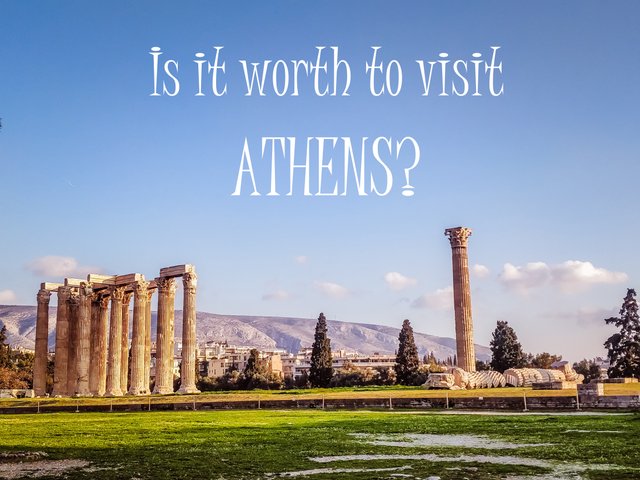
There are places that are best visited during the off-season. Specifically, I mean Athens and February. The sun is not so bad yet and you can visit it in comfortable conditions. Which doesn't mean that there's no sun! On the contrary, it shines beautifully and you can feel the coming warmer months.
But one by one.
Athens is about 40 minutes by bus from the airport. This is a good time, considering that the airport is not in the city centre. You can also get there by subway, but the journey does not take much shorter, and the price is twice as high.
I heard voices saying that Athens is a dirty city. I can't fully agree with this opinion. Especially that they were voiced by people who were in the city a few years ago. Everything seems to indicate that a lot has changed since then, because I did not feel it and at this moment in my ranking the number one is Rome ;) Unfortunately.
Athens have so scattered monuments in terms of location that you can easily get to most places on foot. It is also my favorite way of visiting. ;)
What then is worth visiting in Athens?
1. Acropolis
First place cannot be a surprise - Acropolis. Being in Athens and not climbing a hill is like being in the Vatican and not seeing the Pope.
This is one of the most famous and popular tourist destinations in Europe. The acropolis towers majestically over Athens. From the hill there is a panorama of the whole city, and at night the most famous monument of the Greek capital is beautifully illuminated. The entrance to the Acropolis is quite steep, full of winding paths, and to avoid the biggest queues, it is best to go straight to the rear entrance.
The off-season ticket price is €10.
And what about the Acropolis?
Dionysus Theatre
It is one of the two theatres located on the southern slope. It was built in honour of Dionysus, God of Wine, in the years 342-326 BC. It hosted the famous Dionysians, during which the premieres of the plays of the greatest Greek playwrights took place. The first government was built of marble and reserved for important priests and officials.
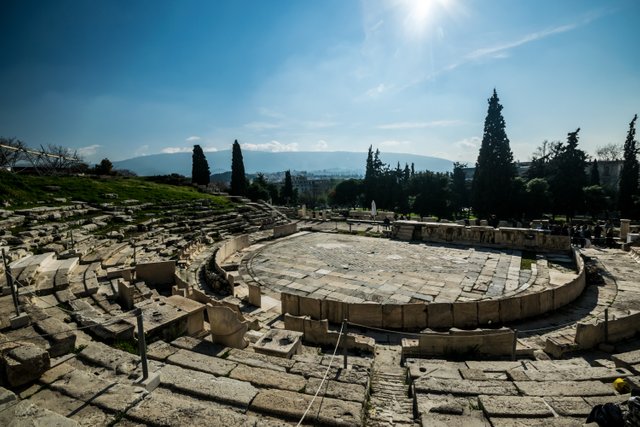
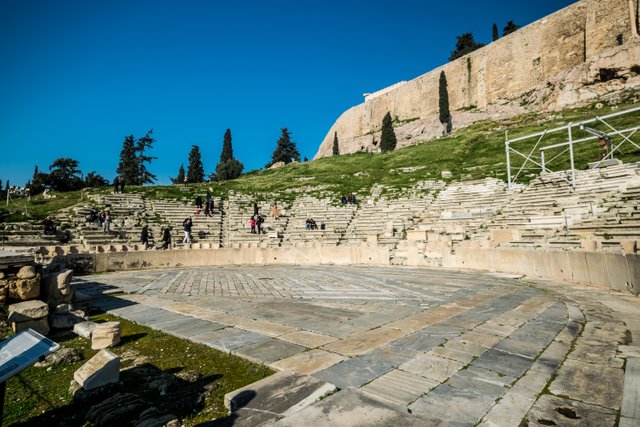
All other armchairs were made of limestone and were occupied by ordinary citizens. Seats for women were moved to the back rows. It is also said that it was here that the first Greek theatre show took place.
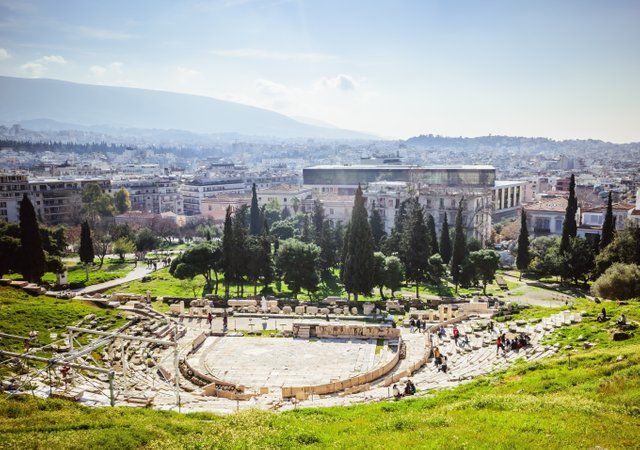
Herod's Odeon Attica
It was built on the south-west slope in 161 A.D. by Herod Attica, in memory of his wife, Aspasia Regilli.
His excellent acoustics are used even today. Every year it hosts performances and concerts as part of the Athens Festival, attracting artists from all over the world.
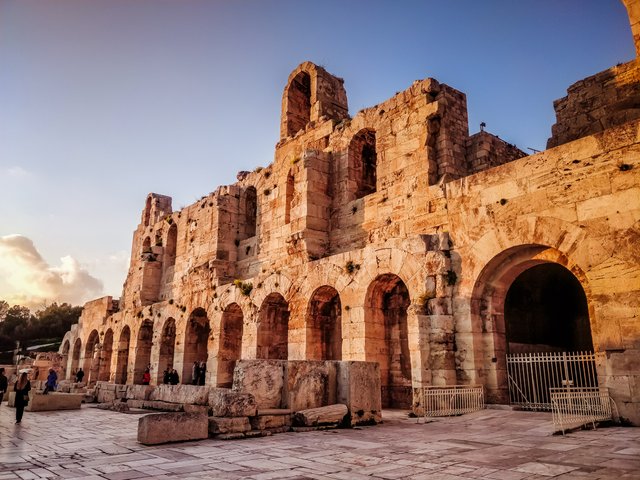
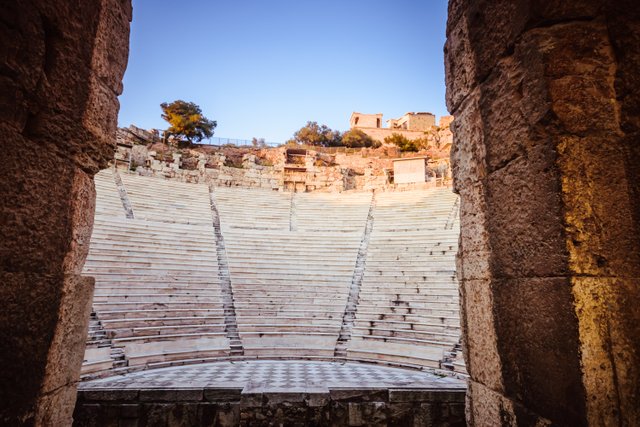

Erechteon
It is a four-storey temple dedicated to Poseidon and Athens, halfway from the Parthenon, one of the architectural masterpieces of that time.
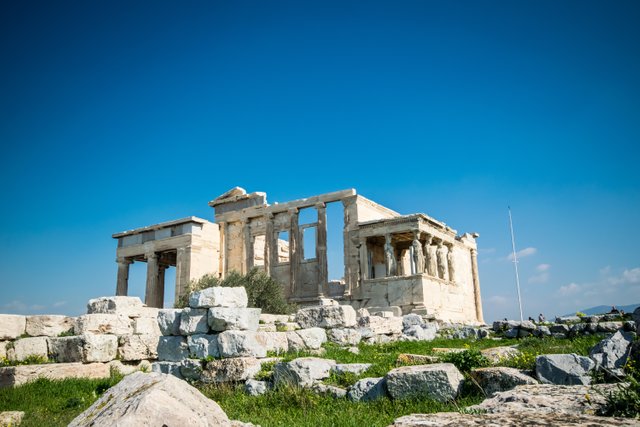
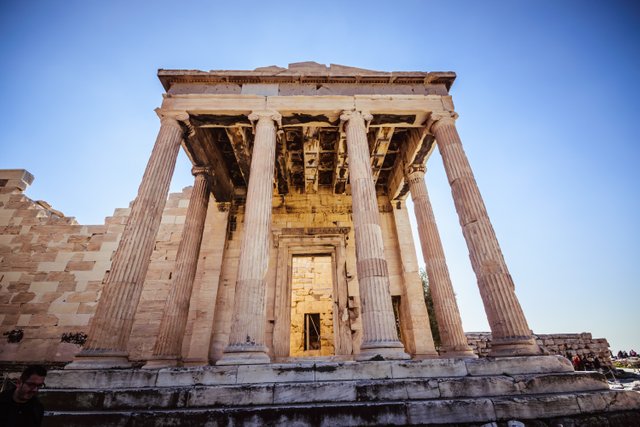
Parthenon
The Parthenon is the main, centrally located building, the crown on the list of spectacular Greek achievements. The construction of this Greek symbol was completed in 432 BC. For the time being, its general appearance is spoiled by the scaffolding. Either way, the history of the world works here. You have to be here!
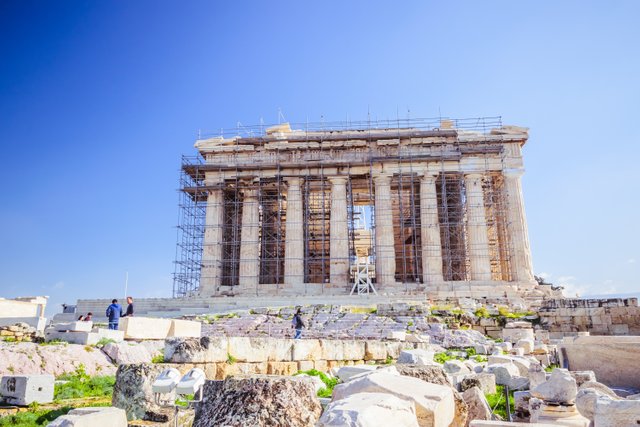

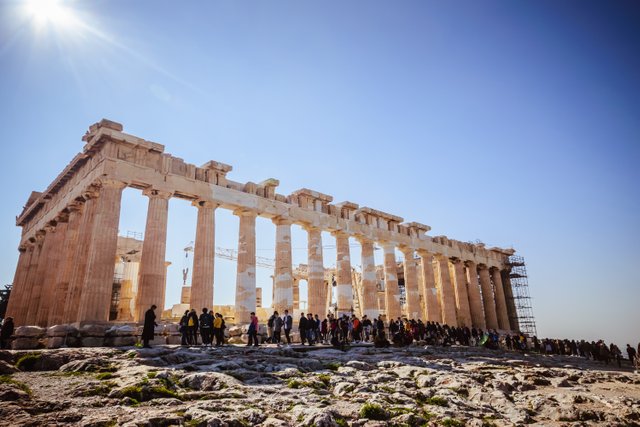
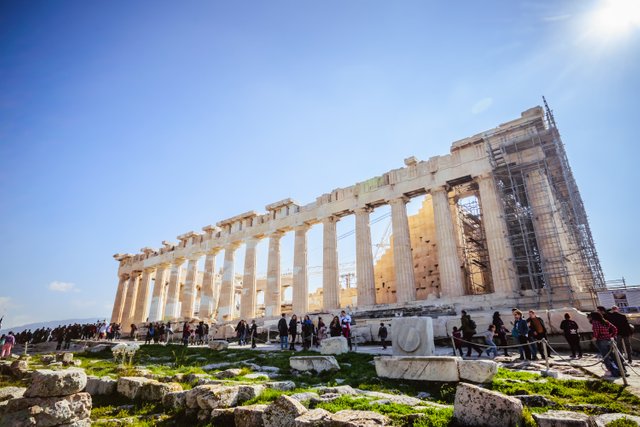
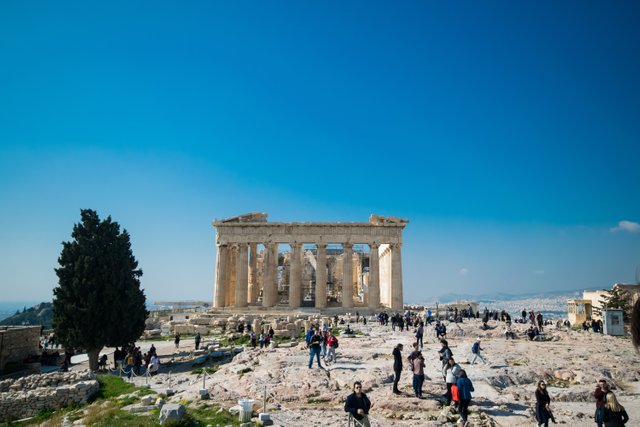
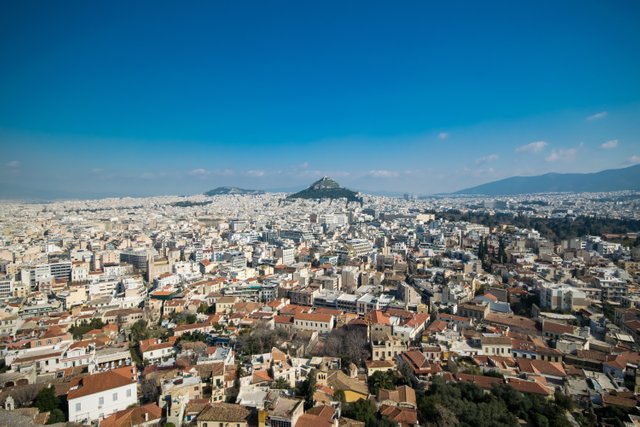
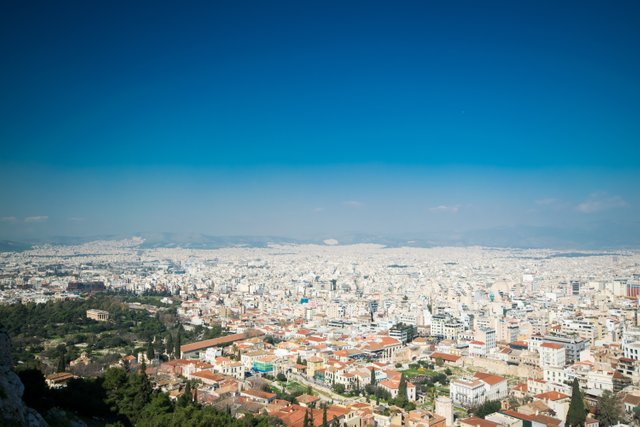
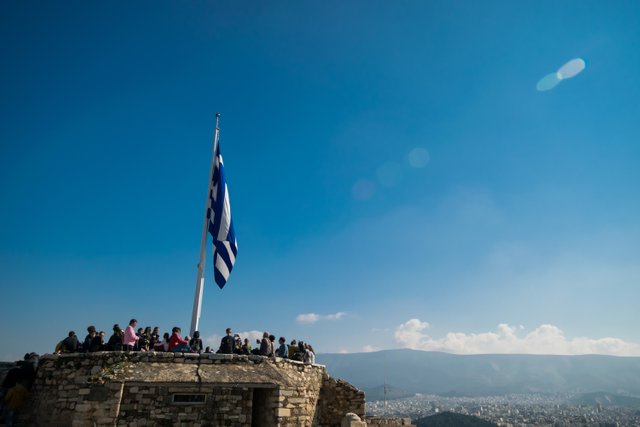
After descending from the Acropolis, it is worth going to the nearby Areopag, a limestone hill about 115 m above sea level. Here you can take beautiful pictures of the city panorama and by the way take a look at the Acropolis towering over the city.
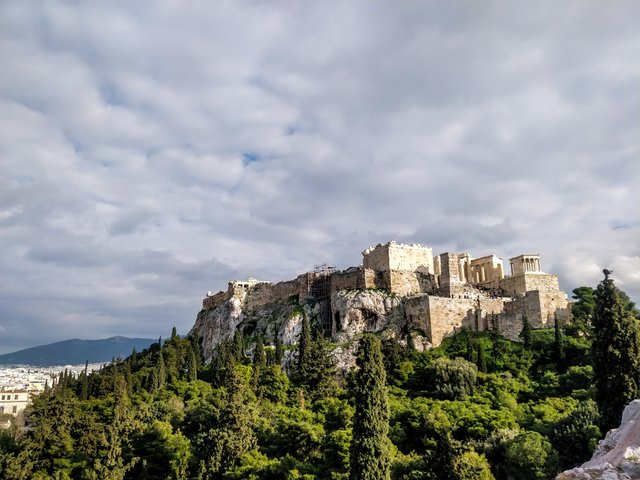
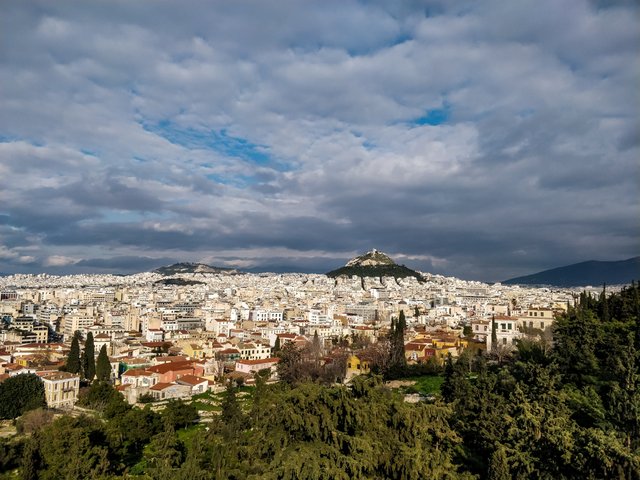
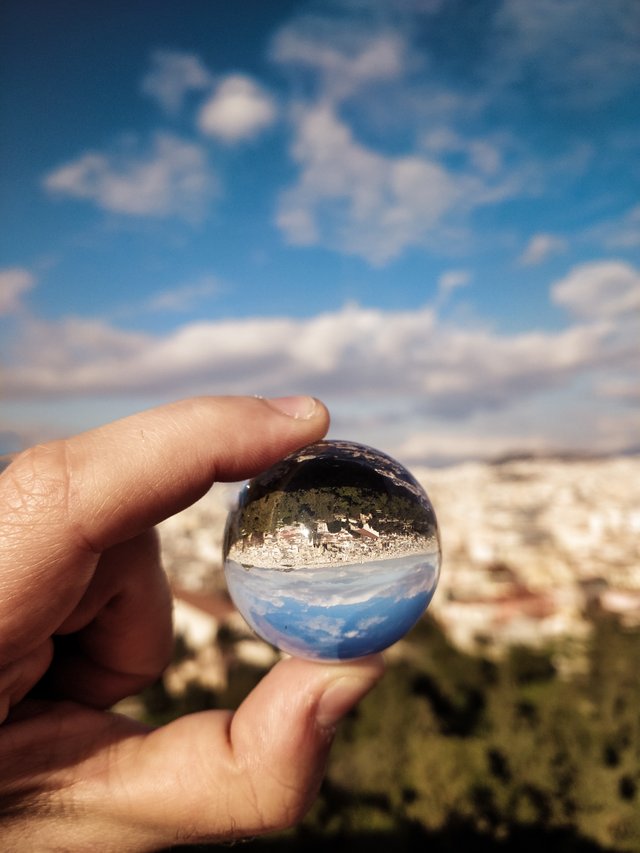
2. Panatena Stadium
It was built in the fourth century BC in the shape of a horseshoe as a place to organize the Panathenaean Games (every four years during the feast in honor of the patron saint of the city - Athens).
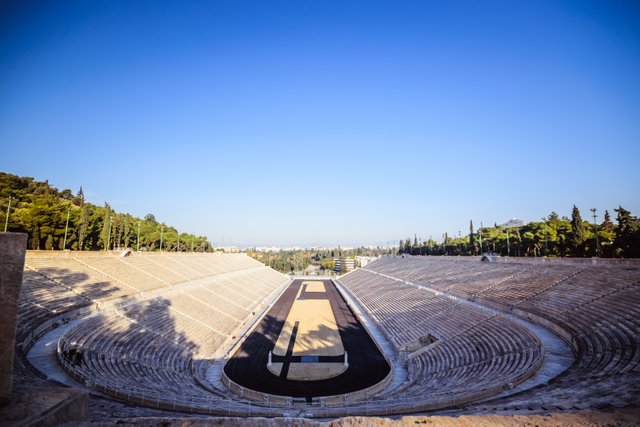
In Roman times it became an arena of performances with gladiators and wild animals. Huge, powerful, long, in ancient times it was supposed to accommodate 90 thousand people, today more than 60 thousand.
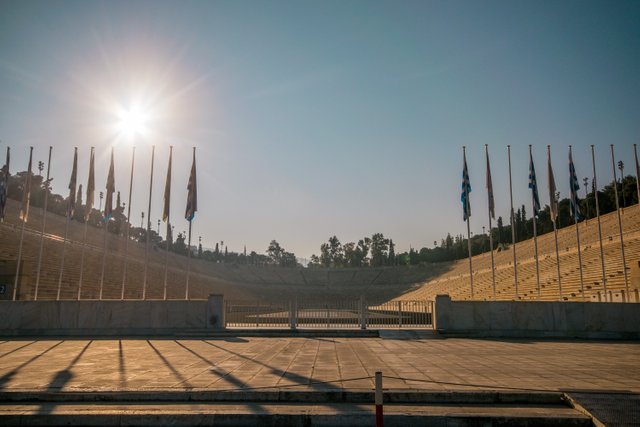
3. The Olimpiejon and the Hadrian Arc
Very close to the stadium there is another famous athenian temple. Actually, a few percent of it. But looking through the eyes of imagination and space you can see how huge this building was. In the vast city garden there are huge ruins of a former temple erected here in honour of the Olympics Zeus.
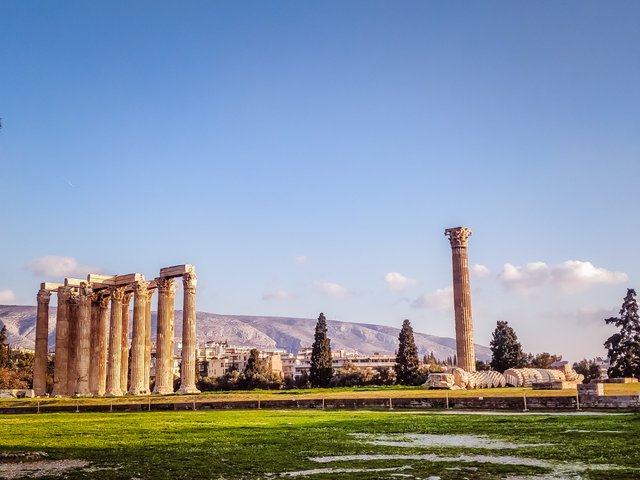
The enormity of this temple can be seen in the numbers that I am describing it: the length of 200 meters, the colonnade of over 100 Corinthian columns over 17 meters high, as well as the time (in fact, the amount of time) during which the temple was built (from the 6th century BC to the 2nd century AD).
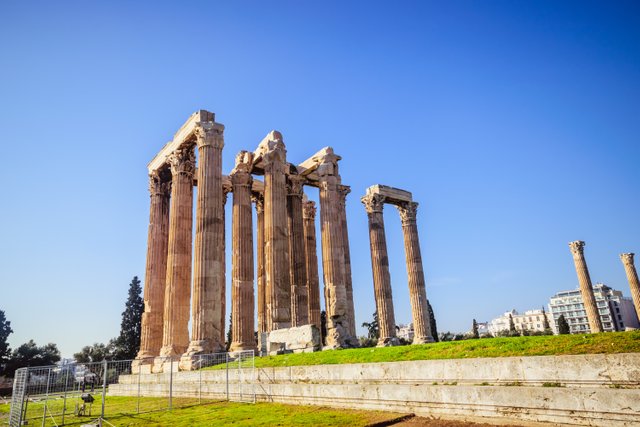
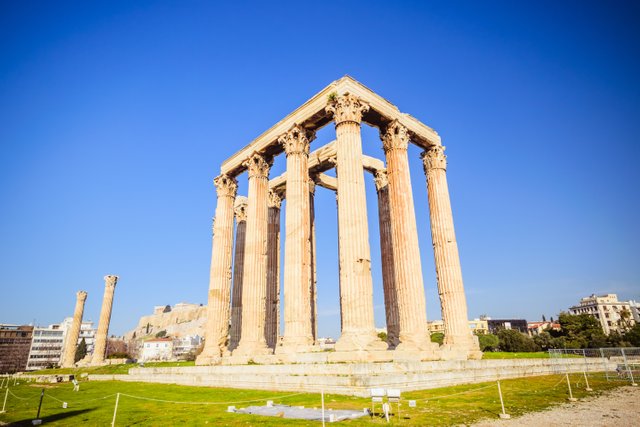
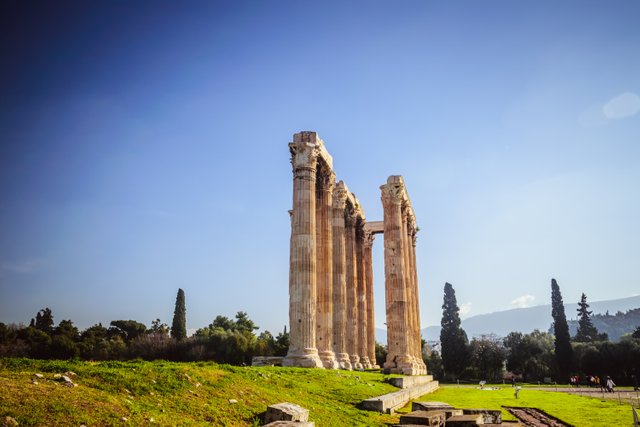
In front of the entrance to the excavations there is the Hadrian Arch, the former eastern gate of Athens.
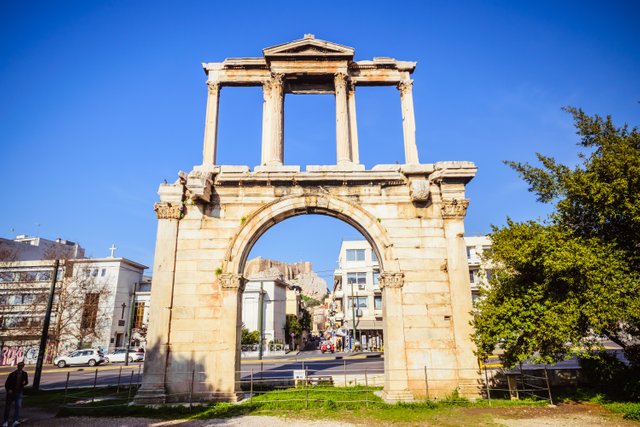
4. Parliament and the Syntagma Square
The central square of Athens is Syntagma Square, or Constitution Square, named after the Constitution signed under the first Greek king Otto. The square was built at the beginning of the 19th century and its construction began after the transfer of the Greek capital from Nauplion to Athens.
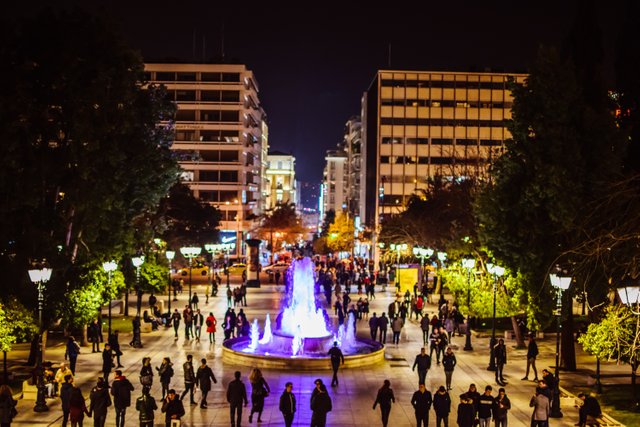
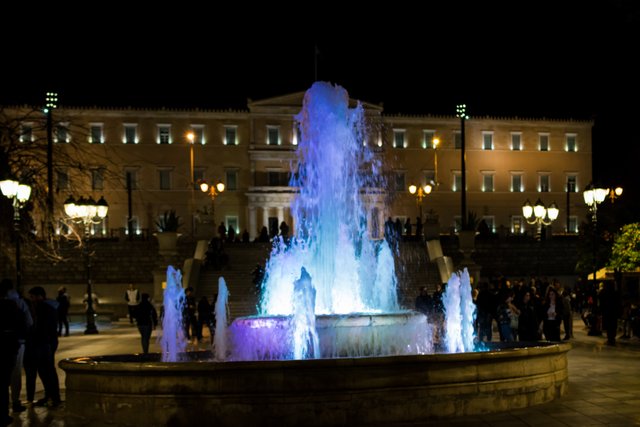
At the square there is an old royal palace from the first half of the 19th century, which has been the seat of the Greek Parliament since 1934. Next to the parliamentary stairs there is the Tomb of the Unknown Soldier. Guards from the elite Evzonoi Presidential Guard troops are standing at the grave around the clock. The guards are dressed in historical costumes from the 19th century, referring to different epochs in Greek history. The guards stand still during their one-hour guard, after which they are changed every hour and this change is accompanied by a characteristic ceremony.
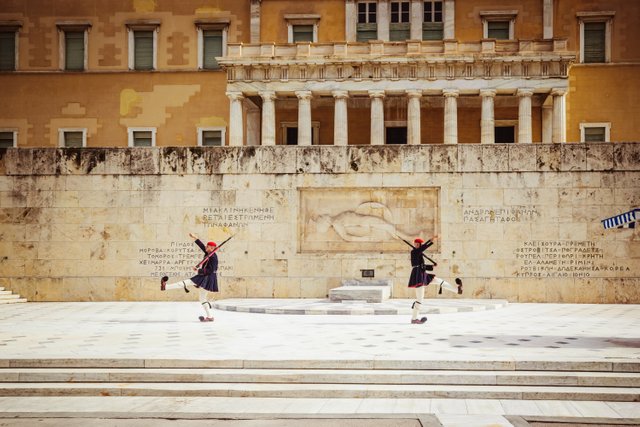
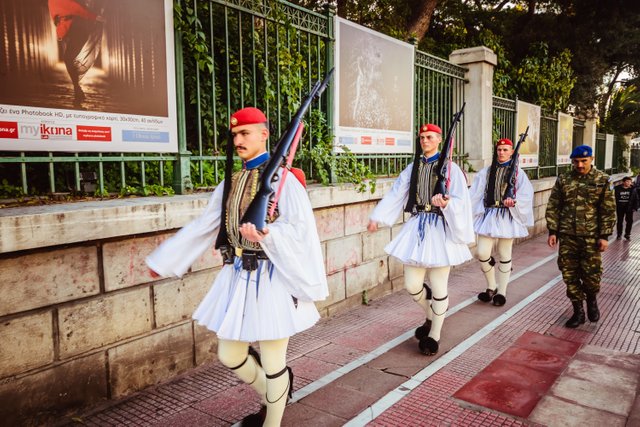
5. Ancient Agora of Athens
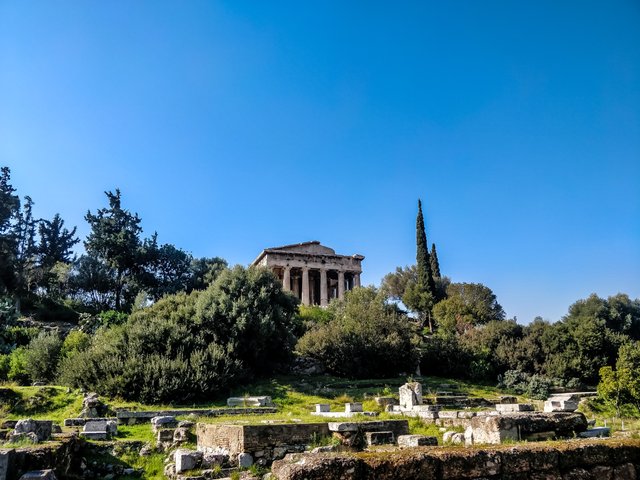
Ancient Agora of Athens was the commercial, social and political center of Athens in antiquity. The center of everyday activities, people came here for shopping and socializing.
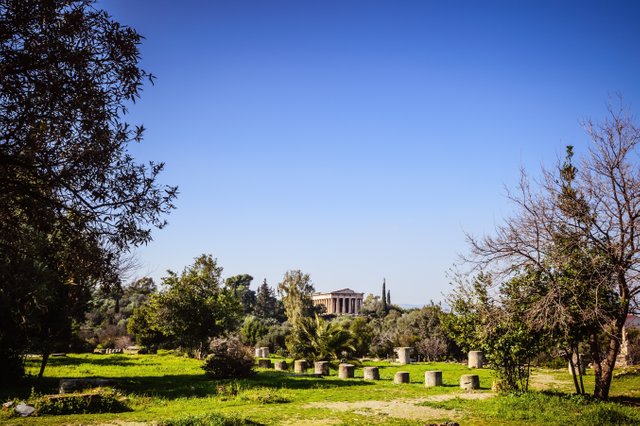
Excavations in the area, which began at the beginning of the 20th century, showed a large number of temples and altars.
Two buildings are still in good condition today:
Hephaestheon - the temple dedicated to Hephaesthus and Athena.
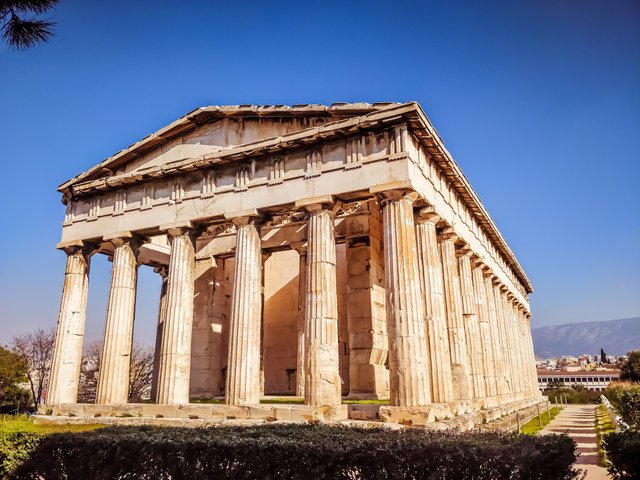
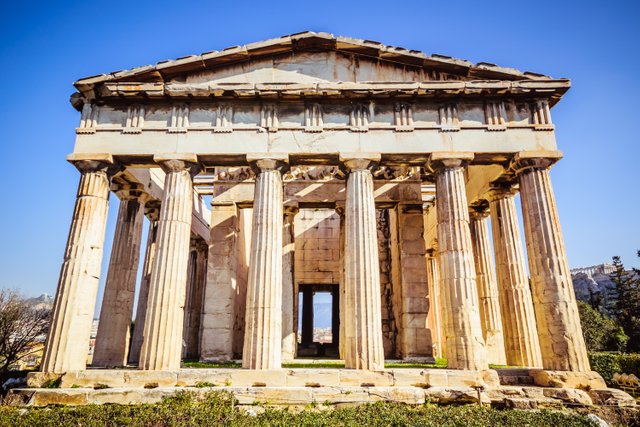
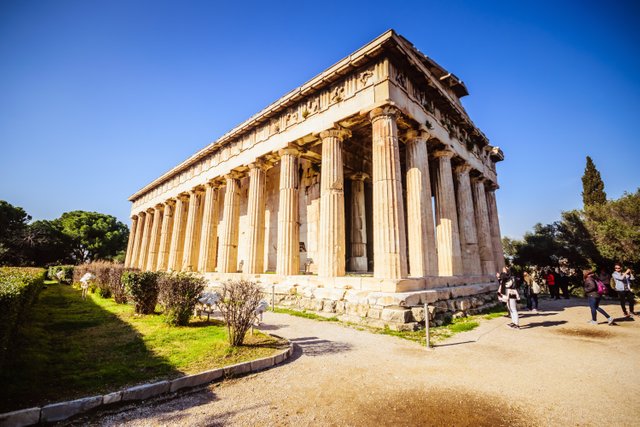
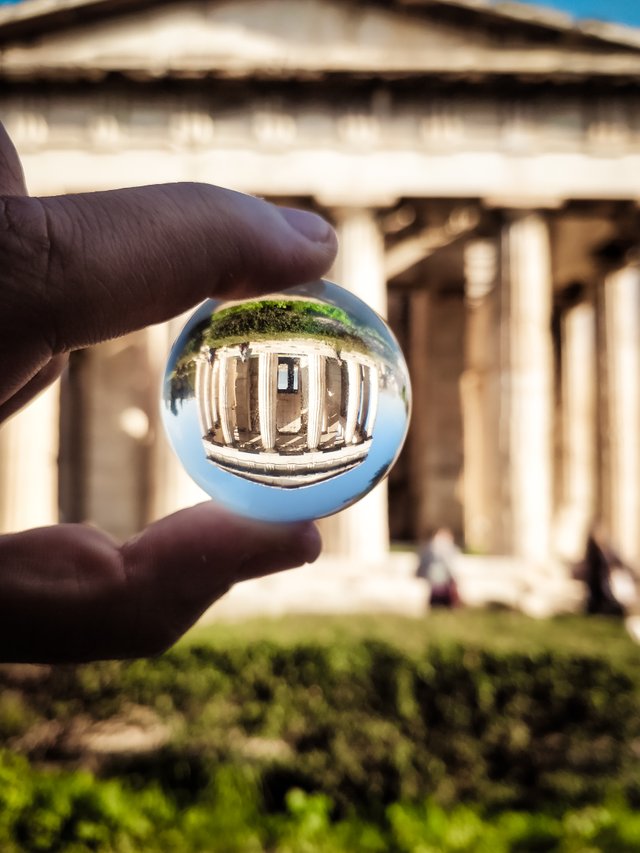
Stoa of Attalos - it functioned as a shopping centre. Each floor had 21 shops. Customers could relax in the shade of the covered colonnade in front of the shops. The stand was destroyed in 267 A.D. by the Herrul, a Germanic tribe. The Attalosa stand on the eastern side of the agora was built in the second century BC by Attalosa II. Reconstructed in 1950, the stand now houses the Agora Museum.
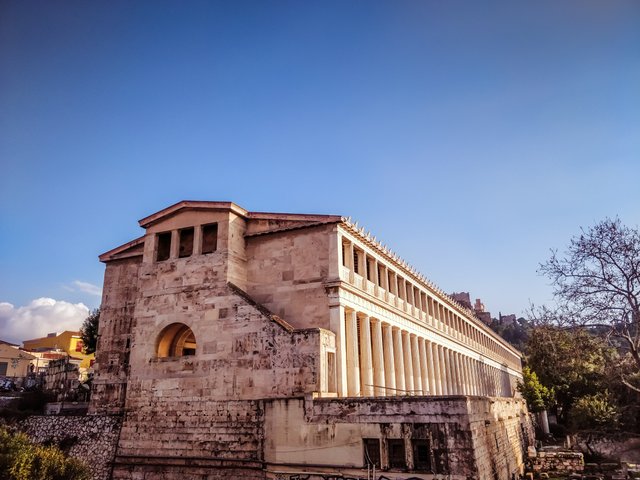
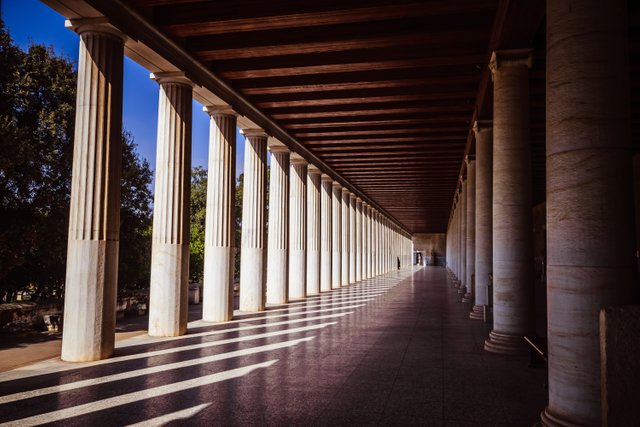
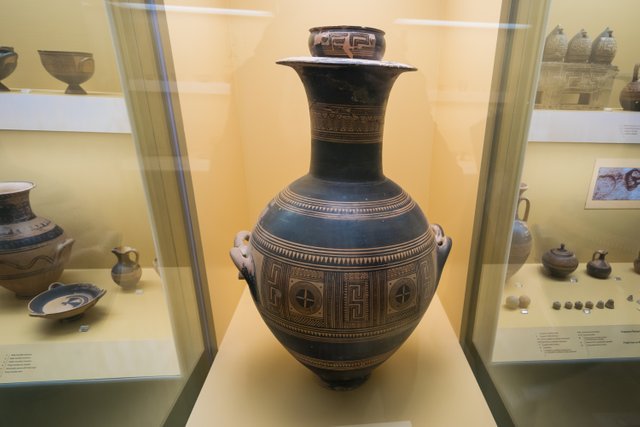
6. National Garden
One of the most beautiful and greenest places in the city. Perfect for relaxation and rest after a long day. Especially during extremely hot, sunny days, the National Garden allows you to cool down a little in the shade of trees, listen to the singing of birds and soothe your eyes with the omnipresent greenery.
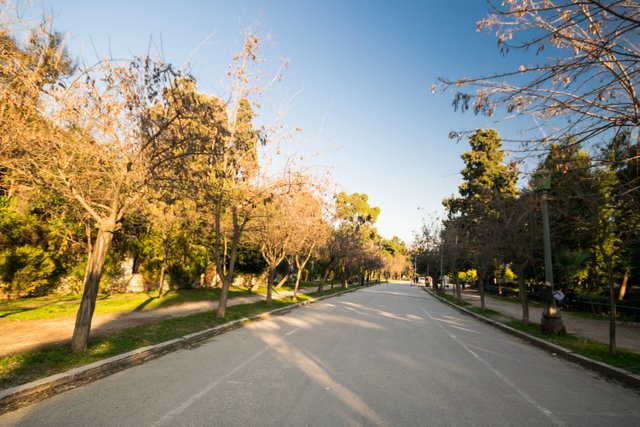
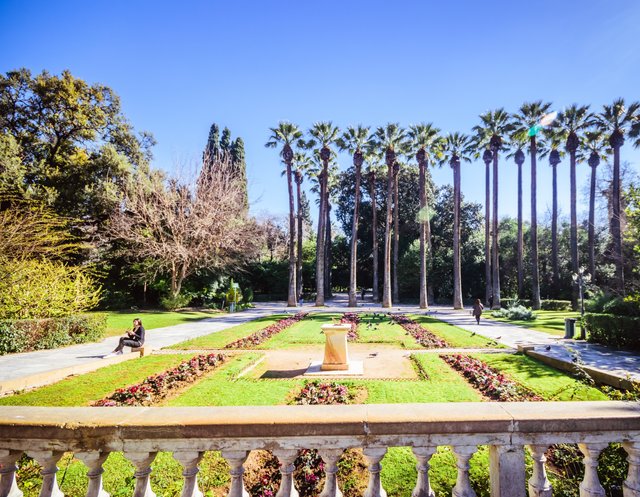
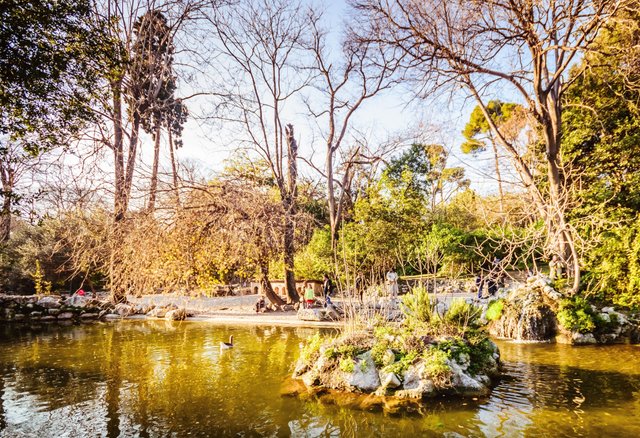
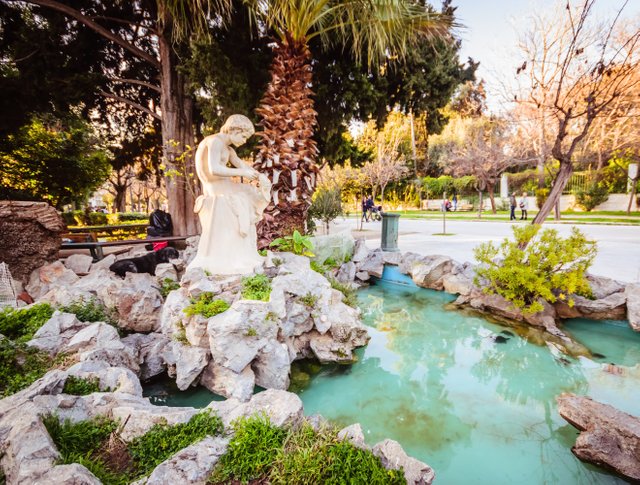
It is surrounded by the Old Royal Palace, which is now the seat of the Greek Parliament.
How about you? Have you ever been in Athens? It is really beautiful city!
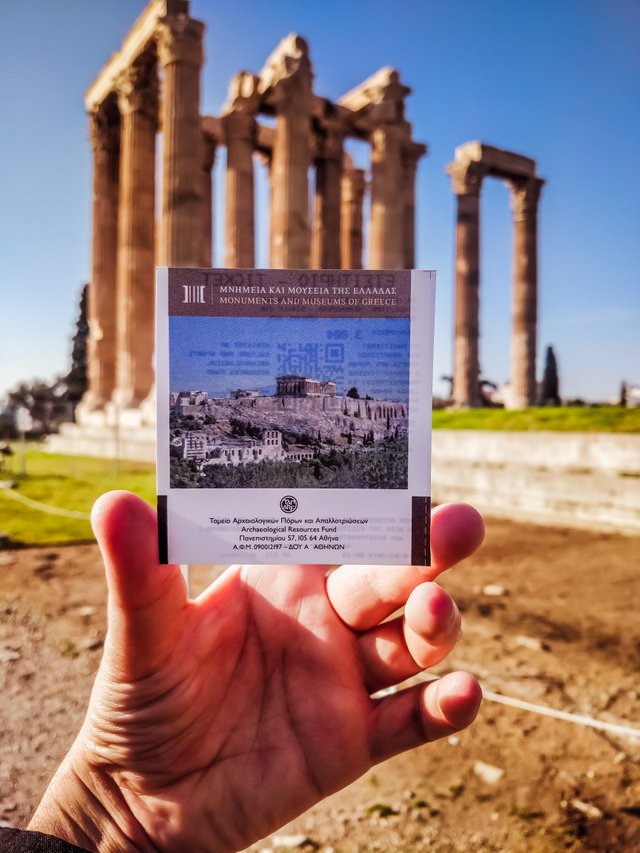

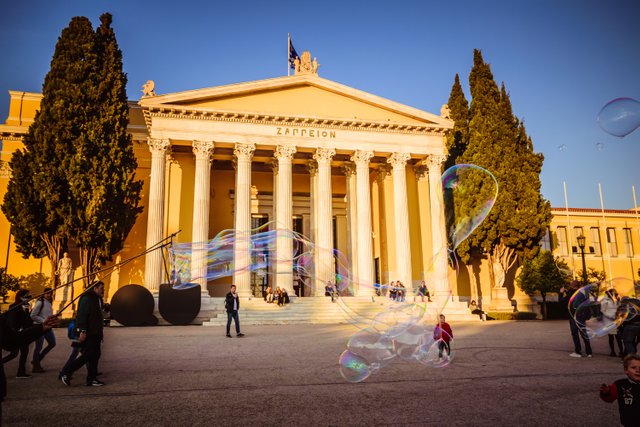
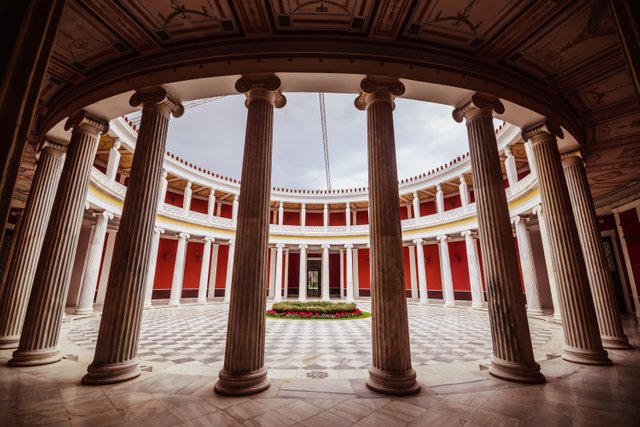
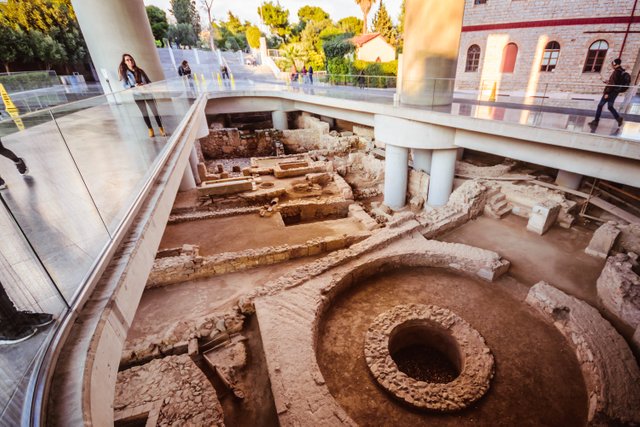
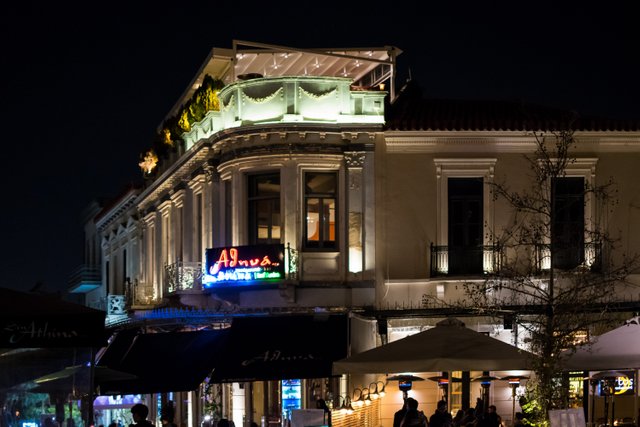



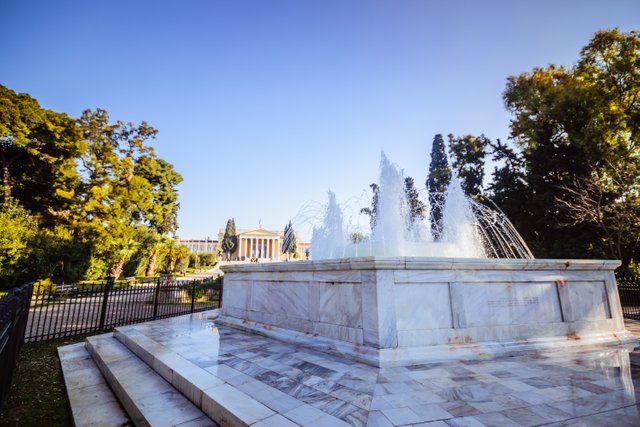
Best regards!

Congratulations, Your Post Has Been Added To The Steemit Worldmap!
Author link: http://steemitworldmap.com?author=lashotta
Post link: http://steemitworldmap.com?post=is-it-worth-to-visit-athens
Want to have your post on the map too?
Hiya, @livinguktaiwan here, just swinging by to let you know that this post made the Honorable mentions list in today's Travel Digest #474.
Your post has been manually curated by the @steemitworldmap team, and if you like what we're doing, please drop by to check out all the rest of today's great posts and consider upvoting and supporting us.
Congratulations! Your high-quality travel content was selected by @travelfeed curator @jpphotography and earned you a partial upvote. We love your hard work and hope to encourage you to continue to publish strong travel-related content.
Thank you for being part of the TravelFeed community!
Learn more about our travel project by clicking on the banner above and join our community on Discord.
Congratulations @lashotta! You received a personal award!
You can view your badges on your Steem Board and compare to others on the Steem Ranking